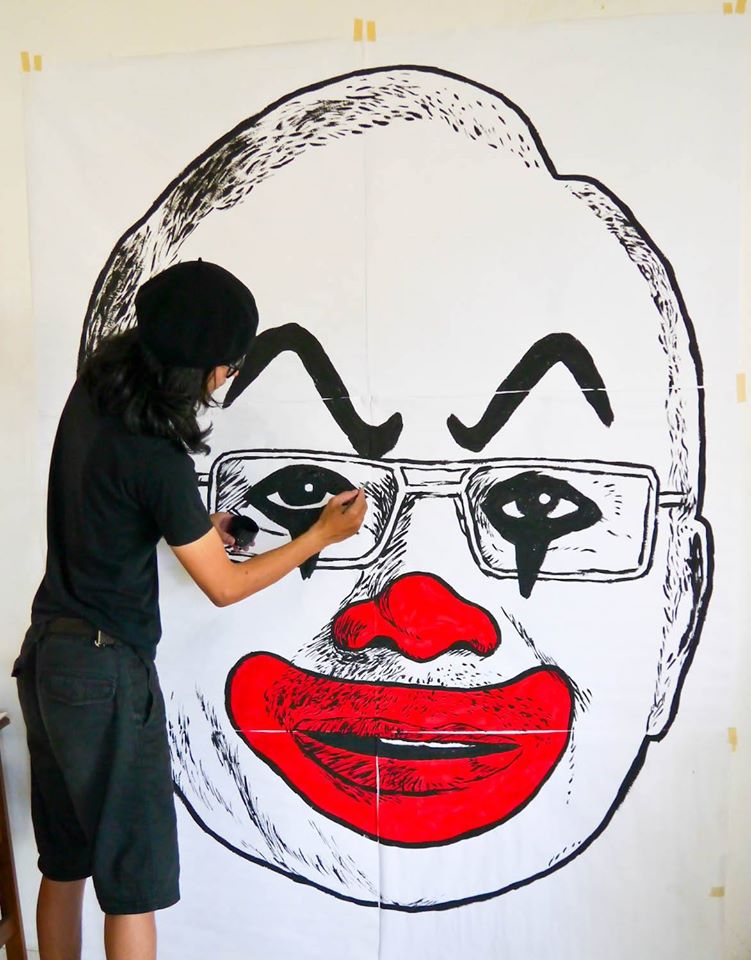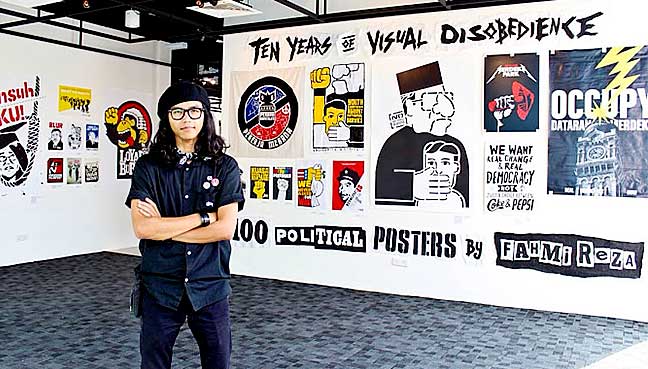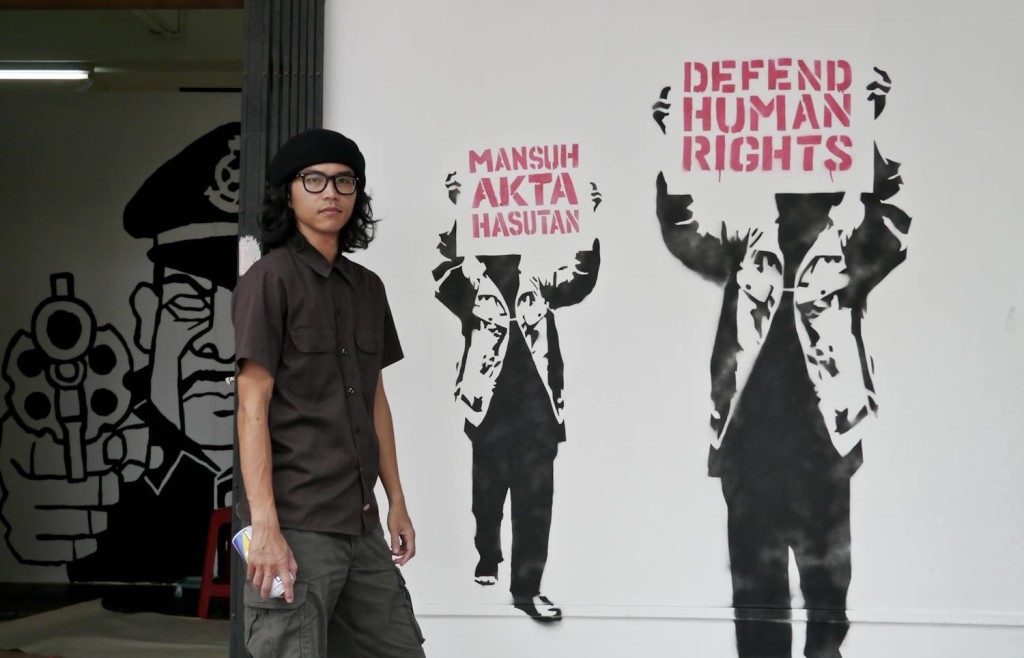Malaysian graphic designer Fahmi Reza has been under government scrutiny for his depictions of the Prime Minister, Najib Tun Razak, as a sinister clown. Drawing Najib clad in white powdered makeup with evil arched eyebrows and a large red mouth, Fahmi says he wants to express that “[The] country is being governed by fools and crooks.”
The movement itself has gone viral across the internet, spurring a provocative image-based protest. Images have been shared online, and posters are stickers are appearing more and more in public spaces. Many artists have picked up on Fahmi’s image and created copycat variations to express their outrage against the Prime Minister’s corrupt scandals as well as his moves to stop the media protest, according to The Straits Times.
Najib has been accused of funneling billions of dollars from a state-owned company he oversees. Additionally, he has come under scrutiny for accepting a mysterious RM2.6 billion ($884 million) overseas payment. He denies the accusations but is also criticised for continuing to curb investigations, silencing government critics and restricting media reporting. In January, Najib’s hand-picked Attorney-General publically absolved him of wrongdoing in accepting the overseas payment which resulted in more accusations of cover-up.
In February, Fahmi was investigated by the police for his social media hashtag “Kita Semua Penghasut,” which translates to “We are all seditious,” and called on to give a statement about the original clown poster that displays the phrase.
Fahmi first received a warning from the police via Twitter after his post on January 31 and accordingly informed that his Twitter account was under police supervision.
The next day, pro-Umno blogger Ali Tinju filed a police report against the activist for the clown poster, which Tinju called “a seditious insult to the PM which could arouse the rakyat’s anger.” Fahmi has also said that the police were investigating possible violations of multimedia laws that constitutes five years in prison.
However, Fahmi is undeterred. He said that if he were arrested, he would gain more renown, and the rebellious movement would spread faster. Additionally, he cited Article 10 of the Malaysian Federal Constitution, which guarantees “every citizen the right to freedom of speech and expression.”
“They can jail a rebel, but they can’t jail the rebellion,” he said.



